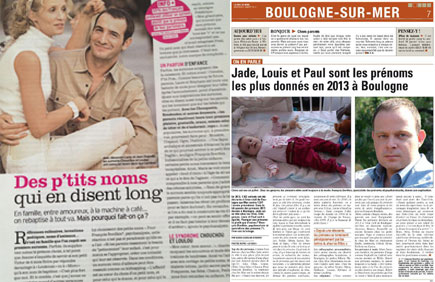Pourquoi ce site ?
Prénommer un enfant ce n'est pas simplement lui donner un prénom. Quelles peuvent être les conséquences psycho-logiques pour l'enfant et l'adulte qu'il deviendra dans le choix de son prénom ? On ne prénomme pas son enfant simplement parce que le prénom est "joli" ou "beau". Autour de ce choix se greffent d'innombrables autres raisons, certaines conscientes, d'autres non.
Que deviendra le petit "Périphérique Nord" parce que sa mère y a perdu ses "eaux" en se rendant à l'hopital ? Et le petit Andy Capet ?
Vous qui portez un prénom ? Qu'elle en est l'histoire ? J'espère qu'au travers de ces pages, illustrées d'exemples réels, certains trouveront des réponses, d'autres peut être découvriront des aspects d'eux-mêmes qu'ils ignoraient.







